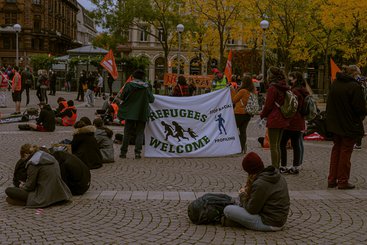This briefing presents an overview of the key features of migration and asylum policy in the US, recent trends in migration patterns, and public perceptions and political narratives on refugees and other migrants:
- Most Americans consistently overestimate the number of unauthorised migrants in the US, with a majority believing at least half of all immigrants are in the country without documentation. In reality, roughly 75% of immigrants in the US have legal status.
- In October 2019, the US resettled no refugees for the first time since records began on the back of highly restrictive policies since President Donald Trump’s inauguration in January 2017.
- Public narratives on refugees and other migrants are polarised and strongly linked with party politics. Yet, 67% of Americans fall into an ‘exhausted majority’ who share a sense of fatigue with polarised national conversations.
- By 2030 there will not be enough Americans of working age to support the country, making hiring migrants and refugees essential to fill gaps in the economy. Businesses can play a key role in demonstrating the economic benefits of employing migrants and refugees.
This briefing is part of a wider project supported by the IKEA Foundation aimed at supporting public and private investors interested in engaging with migration and displacement.
About the series
Through a series of activities, dialogues and innovative communication and outreach initiatives, Public and political narratives on refugees and other migrants: implications for action maps recent research and evidence on public attitudes toward refugees and other migrants.





